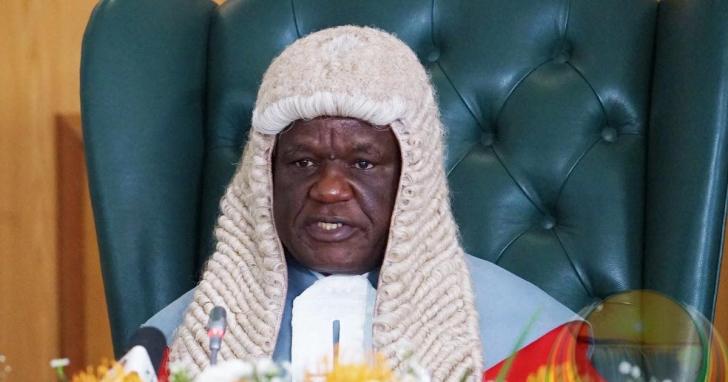News / National
Nepotism in Zimbabwe's public service irks Chief Justice Malaba
15 Jan 2025 at 06:36hrs |
0 Views

Chief Justice Luke Malaba has condemned nepotism in public service, describing it as a form of corruption that undermines governance and service delivery. Speaking at a Judicial Service Commission (JSC) dinner in Bulawayo on Monday evening, he emphasized the need to eradicate nepotism to ensure public offices serve their intended purpose.
Chief Justice Malaba highlighted how nepotism fosters individualism and selfishness, replacing the public interest with personal gain.
"Individuals involved in nepotism have not risen to the level required by public office but remain fixated on personal connections, such as relatives, tribes, or shared surnames. This is the dilemma of today: the wrong people are occupying public offices," he said.
He warned that such practices promote incompetence and corruption, stating: "They are using public office not for its intended purpose but for their own benefit. So, how do we resolve it? How do we disentangle and correct this?"
Chief Justice Malaba urged the nation to reflect on solutions to address nepotism, emphasizing that public office holders must prioritize the law and the people over personal interests. He also called for a collective approach to restoring public confidence in the judiciary.
"That is why we are now talking about collaboration and co-operation. We must move forward and deliver what the offices of the law demand of us as its agents," he said.
The 2025 legal year theme, "Building Public Confidence in the Judiciary through Multi-Stakeholder Participation," underscores the judiciary's commitment to inclusivity and transparency.
In a related development, Judge President Justice Maria Zimba-Dube announced that Masvingo will host the opening of the 2026 legal year, a continuation of the JSC's efforts to decentralize national events.
"This is the shift that reflects the commitment of our Chief Justice to decentralizing the judiciary and taking the legal system closer to the people," she said.
Bulawayo's hosting of this year's event marked a historic milestone, and Masvingo's selection signals a commitment to making judicial services accessible to all Zimbabweans.
Justice Zimba-Dube reiterated the importance of collaboration to achieve a just and effective judicial system, aligning with the Chief Justice's vision of decentralizing the judiciary and fostering public trust.
Chief Justice Malaba's remarks serve as a reminder of the importance of ethical governance and the need for public servants to prioritize their roles in serving the nation. The judiciary's ongoing decentralization efforts further highlight the commitment to ensuring justice reaches all corners of Zimbabwe.
Chief Justice Malaba highlighted how nepotism fosters individualism and selfishness, replacing the public interest with personal gain.
"Individuals involved in nepotism have not risen to the level required by public office but remain fixated on personal connections, such as relatives, tribes, or shared surnames. This is the dilemma of today: the wrong people are occupying public offices," he said.
He warned that such practices promote incompetence and corruption, stating: "They are using public office not for its intended purpose but for their own benefit. So, how do we resolve it? How do we disentangle and correct this?"
Chief Justice Malaba urged the nation to reflect on solutions to address nepotism, emphasizing that public office holders must prioritize the law and the people over personal interests. He also called for a collective approach to restoring public confidence in the judiciary.
"That is why we are now talking about collaboration and co-operation. We must move forward and deliver what the offices of the law demand of us as its agents," he said.
In a related development, Judge President Justice Maria Zimba-Dube announced that Masvingo will host the opening of the 2026 legal year, a continuation of the JSC's efforts to decentralize national events.
"This is the shift that reflects the commitment of our Chief Justice to decentralizing the judiciary and taking the legal system closer to the people," she said.
Bulawayo's hosting of this year's event marked a historic milestone, and Masvingo's selection signals a commitment to making judicial services accessible to all Zimbabweans.
Justice Zimba-Dube reiterated the importance of collaboration to achieve a just and effective judicial system, aligning with the Chief Justice's vision of decentralizing the judiciary and fostering public trust.
Chief Justice Malaba's remarks serve as a reminder of the importance of ethical governance and the need for public servants to prioritize their roles in serving the nation. The judiciary's ongoing decentralization efforts further highlight the commitment to ensuring justice reaches all corners of Zimbabwe.
Source - The Chronicle
Join the discussion
Loading comments…


